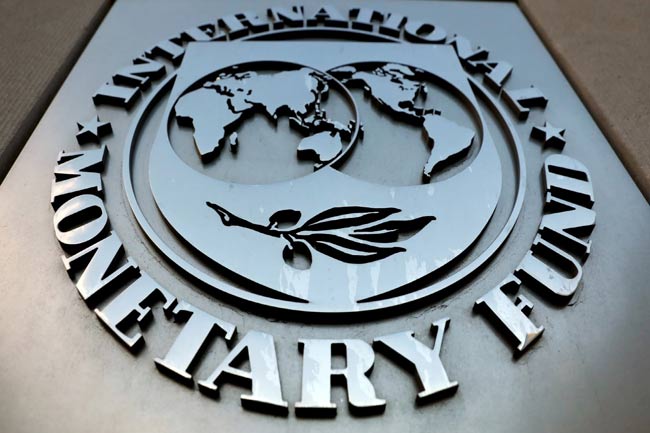The International Monetary Fund has approved requests for emergency pandemic aid from 50 of its 189 members for a total of about $18 billion and is continuing to work quickly through the remaining more than 50 requests, an IMF spokesman said on Thursday.
The IMF’s executive board was working through requests at record speed and would consider a request from Egypt for both emergency financing and a stand-by lending arrangement on May 11, spokesman Gerry Rice told reporters in an online briefing.
“It’s an IMF moving at an unprecedented speed in an unprecedented way to meet this unprecedented challenge which we’re all facing,” he said, noting the Fund had also temporarily suspended payments on IMF debts for 25 of the poorest countries.
Rice did not name all the countries that have emergency requests pending. But replying to questions, he said the Fund’s staff was considering requests from Sri Lanka, South Africa and Zambia. He did not provide the amounts they had requested.
Responding to a question on the status of IMF rapid credit facility requested by Sri Lanka and kind of engagement that the Fund will have with the island nation now that the IMF program with Sri Lanka is about to be over, Rice said: “I can confirm, we have received a request from the Sri Lankan government for emergency financial support, under the rapid financing instrument.”
The Fund will be working in close coordination with the Sri Lankan government to assess all relevant factors related to that request,” Rice said adding that “I can also say that the Sri Lankan authorities also expressed interest in a range of options for future engagement with the Fund, and, in this context, again, we’re discussing the authority’s intention to replace the extended fund facility arrangement that they had with the rapid financing instrument.”
The aid granted under the IMF’s rapid financing initiatives comes without the usual conditionality, but the Fund is working to ensure transparency and prevent corruption by asking all recipient governments to commit to enhanced reporting of crisis-related spending and undertake audits, Rice said.
He said the funds were also subject to the IMF’s safeguards assessment policy, under which a central bank’s framework of governance reporting and controls must be deemed sufficient to manage resources, including IMF disbursements.
Rice said the Fund was also in discussions with Zimbabwe, which has cleared its arrears with the Fund but is not currently eligible for IMF assistance since it has arrears with other financial institutions and bilateral creditors, Rice said.
“Beyond the issue of arrears, consideration of any future request would require Zimbabwe to be ready to implement strong macro policies, and structural reforms,” he said. “We do recognize the dire circumstances facing the people of Zimbabwe, and we’re providing technical assistance right now.”
An IMF team will begin discussions next week with Lebanon, another country that has run into debt sustainability issues, on the details of its economic reform plans, Rice said.
He said IMF Managing Director Kristalina Georgieva viewed Lebanon’s plan as an important step forward to address its economic challenges and identify key areas for reforms to restore external and public debt sustainability.
Rice said the IMF was also in talks with Argentina and Ukraine.
With excerpts from Reuters
















